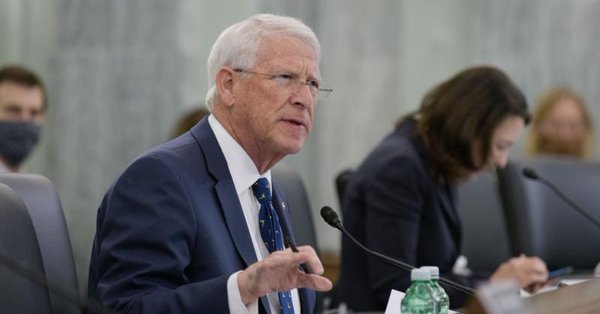Domestic Energy Crisis Relief Act bill introduced
U.S. Senator Cindy Hyde-Smith (R-Miss.) has introduced the Domestic Energy Crisis Relief Act to restore commonsense to U.S. energy policies in a manner that would enhance job creation and energy security.
The Hyde-Smith legislation cites shortcomings in the Biden administration’s energy policies, while pinpointing a series of requirements to be taken by the administration to facilitate energy production, create American jobs, strengthen national security, and support energy-producing states like Mississippi.
“The Biden administration likes to toss around throwaway terms like ‘global markets’ and ‘supply and demand’ to dismiss the higher energy prices being paid by Americans today. These platitudes ignore the fact the administration’s energy policies are doing more harm than good,” said Hyde-Smith, who serves on the Senate Energy and Natural Resources Committee.
“I’ve written this bill to restore confidence in using American energy resources, including oil and gas, to help restore the economy, boost job creation, and make the United States less dependent on foreign powers that aren’t necessarily our friends,” she said.
Primary focuses of the Domestic Energy Crisis Relief Act (S.3353) include:
Lowering Gas Prices. Immediately resume robust federal oil and gas leasing on federal lands and waters by revising the Biden administration’s failed regulatory agenda and legislative priorities to comply with existing law under the Mineral Leasing Act and Outer Continental Shelf Lands Act.
Creating Jobs. Promote the use of U.S. manufacturers and American workers in all energy-related construction. Investing in this type of infrastructure would not only produce demand for American-made products, but also improve the ability to bring goods to market.
Strengthening National Security. Enhance American competitiveness and reduce the need for foreign oil from OPEC and Russia by withdrawing from the Paris Climate Agreement, strengthening the U.S. Futures Markets though increased transparency, and supporting the development of additional oil and gas pipelines to the United States, such as the Keystone XL Pipeline.
Increasing State Revenue Sharing. Eliminate an existing $375 million cap on state revenue sharing. Provide a 50 percent revenue sharing distribution for GOMESA states, protect GOMESA payments from any sequestration cuts, and make oil and gas leases from 2000-2006 eligible for future GOMESA payments to Gulf Coast states.
Read a summary of the legislation here.
Access a copy of the legislation here.
DeSoto County News Service – News Release






